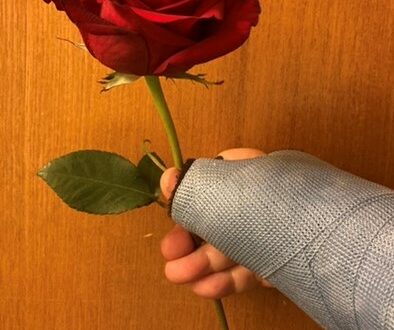Periods, Purity and the Person of Christ
“Miss, can we take the Lord’s Supper if we are bleeding?”
I stared blankly at the eight young Indian women I had come to teach on the eastern coast of India. I flippantly answered, “Of course you can.”
Fearing I had misunderstood their question, the spokeswoman for the group asked me again emphasizing each phrase. “No, Miss, at that certain time, each month, can we take the holy elements?” Checking my spirit, I responded softer, “Yes. Of course.”
Still unsure there hadn’t been some language barrier confusion, they nervously glanced at each other with a glimmer of uncertain hope. “Are you sure, Miss? We can even walk into the church? We will not make it unclean?”
I proceeded to ask a series of questions, unveiling significant cultural differences in how we viewed menstruation. Depending on the Indian state represented, the restrictions varied from only sitting in the courtyard of the church to sitting near the back to never touching a male relative’s food or clothing.
As we talked, I became increasingly aware that those circled around me were living under the weight of a Levitical purity law. With one simple question, eight brown-eyed beauties transported me to the life and realities placed on an Israelite woman in early Judaism, as described in Leviticus 15:19–33.
The experiences of these women challenged me to study this purity law in depth. In my study, I encountered a nameless woman within the pages of Scripture who living under this law becomes a catalyst for Christ to establish himself as Messiah.
Known For Her Affliction
Mark 5:25 reads, “Now a woman was there who had been suffering from a hemorrhage for twelve years.” (NET Bible) Despite all her attempts to find relief, the gravity of her condition only magnified under the hands of doctors with each passing year (v.26).
Levitical law required the woman take staunch measures to ensure her impurity during this time would not taint her husband, friends, or even random objects within her home. This required her to refrain from touching anyone or anything for the duration of her bleeding, as she would impart her impurity to them (Lev 15:26–27). Rather than threatening an accidental encounter, a woman who suffered this severity of an illness lived quarantined outside of town with lepers. She lived cut off from normal routines, until so forgotten about, her affliction became her name—the bleeding woman.
From the outskirts of town, however, she began to hear of a man named Jesus, who healed the sick, cast out demons and calmed the waters. News reports spread even to her place of confinement, and multitudes gathered to marvel at all Jesus did (Mk 5:20–21). She watched and listened from a distance until one day Jesus came to her town.
Snaking her way through the crowd, she came up behind Jesus and reached out her hand. The bleeding woman approached Jesus in faith, believing he could make her well, even by the simple touch of his robe.
For the first time in twelve years, the bleeding woman experienced physical touch (v.27). In an instant, life shifted. The blood, which flowed freely for twelve years, dried up (v.29). She felt the immediate difference in her body.
Something more profound also happened. She received spiritual healing. Her physical healing meant she could now enter the women’s court of the temple to worship and offer sacrifice. For more than a decade, her blood would have defiled the holy place, intermingling sacrificial blood with her diseased blood (Lev 15:31).
Now, no hindrance existed in her relationship with Yahweh. Jesus, God the Son, changed the paradigm. Isolation and hopelessness ceased with a single touch.
A New Way
Years of isolation pass for us, as well, and we begin to believe our afflictions and situations will remain permanent fixtures of our identity. Fear flourishes. Loneliness lurks. Isolation ensues. What imprisons you from taking a risk to encounter Jesus?
Healing can occur, however, just as it did for the bleeding woman. The bleeding woman stepped out of her isolation, no longer imprisoned by fear and her faith soared. She put her faith into action, and as a result she signified her complete trust in Jesus to provide the physical and spiritual healing she needed.
As the narrative closes, Jesus said, “Daughter, your faith has made you well. Go in peace, and be healed of your disease” (Mk 5:34). Within the entire book of Mark, Jesus names only the anonymous woman. She now bore his mark—daughter. Impurity removed. Status regained.
Jesus cared enough to stop and focus on the bleeding woman’s need (v.30), seek her out amid the crowd of people (v.32) and grant her a new name (v.34). In our afflictions, God cares enough to focus on our needs and offer us another way, as well.
Feel the touch of Christ by inviting someone trustworthy and safe into your home. Ask for a hug. Allow their embrace. Emulate the courage of the bleeding woman and share your affliction. Let the church embody Christ, incarnating his love and value of you.
I’ve often returned in my mind the courageous Indian women that surrounded me with a simple question. They emerged from their designated twenty first century defilement zone, just as the bleeding woman did, with a glimmer of hope that Christ provided a shift in thinking.



